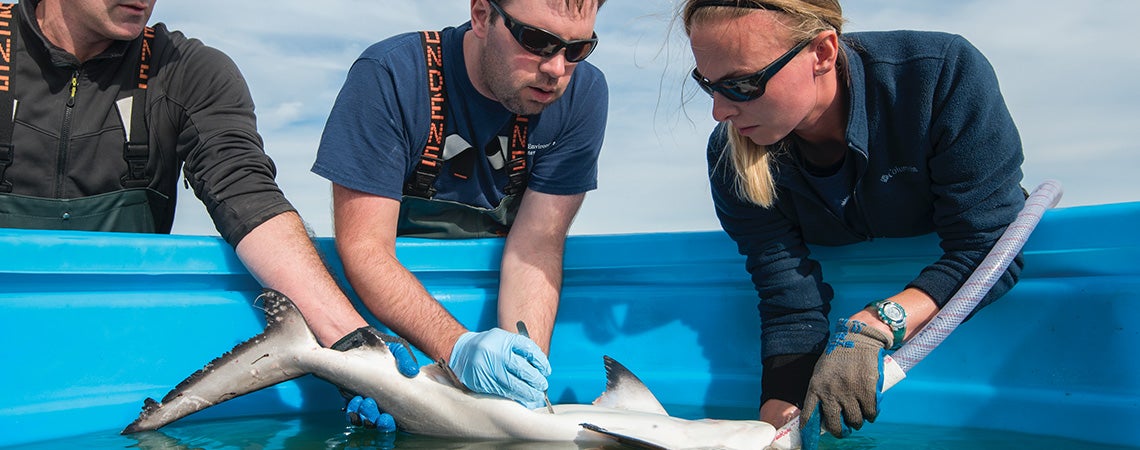Bull sharks more abundant in N.C. waters, study says
Sightings of nursing bull sharks in coastal estuaries such as North Carolina’s Pamlico Sound are on the rise, largely due to ocean warming, a phenomenon that is encouraging bull sharks to “colonize” the sound as part of their nursing habitat.
That’s the conclusion of a multiyear study by researchers from ECU and Simon Frasier University and published April 16 on Nature.com.
Researchers said bull shark nursing activity in the Pamlico Sound went from minimal before 2010 to an annual occurrence starting in 2011.
That’s troubling news for humans as bull sharks can grow to more than 10-and-a-half feet long and are known to attack large prey, including humans. The Pamlico Sound is one of the biggest attractions on the Outer Banks, drawing tens of thousands of visitors annually.
“My co-authors and I were not specifically looking for bull sharks when we started analyzing coastal shark catch data from the North Carolina Division of Marine Fisheries,” lead author and former ECU doctoral student Chuck Bangley said in a blog post on Southern Fried Science. “In fact, previous evidence would have convinced us that bull sharks would likely be rare.”
Bangley says the warming waters may have prompted the sharks to give birth to their pups farther north. He added that bull sharks seem to have “taken a liking to Pamlico Sound as a nursery habitat” since 2012.
Only six juvenile bull sharks were captured in Pamlico Sound from 2003 to 2011. From 2011 to 2016, the number jumped to 53, says the report.
The study says the results suggest increasing water temperature and salinity have allowed bull sharks to expand their nursery habitat, and this shift will have unknown, but potentially strong, impacts on local ecosystem and interactions with humans.
The study was also co-written by experts from the North Carolina Division of Marine Fisheries. The researchers involved in the report called the evidence “dramatic.”
The findings are just the latest in a series of reports showing the impact ocean warming is having on sharks.
Bull sharks can tolerate brackish and fresh waters, which means they can be found in any body of water connected to the ocean, experts say.
“To our knowledge, this study is the first to attempt to associate environmental factors with the apparent colonization of a nursery habitat by a marine apex predator,” says the report. “The use of Pamlico Sound as a primary nursery may increase further if water temperatures remain warm and females born in the system reach maturity and return to give birth.”
The study notes evidence that bull shark populations are recovering from previous declines, which may cause a range expansion into new areas where they once roamed. However, the Pamlico Sound was not one of those areas, the experts say.
